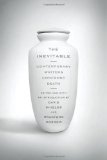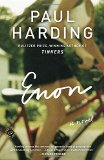Summary | Excerpt | Reviews | Beyond the book | Read-Alikes | Genres & Themes | Author Bio

Contemporary Writers Confront Death
by David Shields, Bradford MorrowEditors David Shields and Bradford Morrow have put together a heavy but thoroughly interesting collection of essays in The Inevitable: Contemporary Writers Confront Death. Before opening the book, I had expectations about what death would look like in these essays - a somber funeral, the confusion of having lost someone, or perhaps a rumination on emptiness and loss. And while these elements are present, I was also genuinely surprised by the uniqueness of the authors' experiences of death; it is encountered in an array of different ways, is interpreted differently, and means different things to people of varying cultures. That element - that intriguing difference - is what I found most compelling about this collection. Death is the one and only thing that all living beings have in common, and yet it is so personal.
As an example, in her essay "The Sutra of Maggots and Blowflies," Sallie Tisdale gives an unlikely and rather taxonomical account of her fascination with flies and how they relate to her understanding of Buddhism. She writes, "The Buddha taught that nothing is permanent...It means that all things are compounded and will dissolve....I study how flies use the world - how they make something of it that wasn't there before. They liquify the dead, they slurp up the world...They shoot out of lakes and the ground and out of bodies, joyous, filled with air." And just a few dozen pages away, in an essay entitled "Bijou," Mark Doty contemplates a pornographic movie and the spread of AIDS in the 1970s and 1980s.
While, in Kevin Baker's gripping essay, "Invitations to the Dance", he waits for test results indicating whether or not he has Huntington's disease, the very same incurable disease that ravaged his mother's brain.
The level of thinking and, moreover, the level of writing in this collection is excellent. These essayists discuss death, but they also get at the heart of illness, racism, trauma and shame. They speak candidly about not actually knowing anything about death, that it is an inexpressible, inconceivable reality to the living. As Lance Olsen eloquently states, "...the only real closures come in mimetic fiction and memoir, redemption and faux wisdom hardened into commodity. Like an order of Arby's Cheesecake Poppers." And Lynne Tillman theorizes, "Of death, mortals are absolutely ignorant. The dead, fortunately, are beyond caring."
In fact, I'd say that this is one thing they all have in common - each writer tries to describe what they do know in the face of uncertainty, and interestingly, most of them look to other writers as a way of understanding: Woolf, James, Dickens, Dostoevsky, Shakespeare...the list goes on and on. They are united in that death is the one experience they will never write about. For example, Kyoki Mori explains, "Death means having no more thoughts to understand or express in words. How can I imagine not having words when that very imagining must occur in words as long as I am alive?"
The Inevitable is an engaging book and is, at times, quite serious, and for that reason, I would suggest giving yourself plenty of time to savor the writing, to ruminate over questions posed by the writers. In some instances, the essays are so incredible they read like fiction, and are sure to
be well worth a reader's while. I highly recommend this book.
![]() This review
first ran in the March 9, 2011
issue of BookBrowse Recommends.
This review
first ran in the March 9, 2011
issue of BookBrowse Recommends.

If you liked The Inevitable, try these:

by Joy Williams
Published 2018
From "quite possibly America's best living writer of short stories" (NPR), Ninety-Nine Stories of God finds Joy Williams reeling between the sublime and the surreal, knocking down the barriers between the workaday and the divine.

by Paul Harding
Published 2014
A stunning mosaic of human experience, Enon affirms Paul Harding as one of the most gifted and profound writers of his generation.
Your guide toexceptional books
BookBrowse seeks out and recommends the best in contemporary fiction and nonfiction—books that not only engage and entertain but also deepen our understanding of ourselves and the world around us.